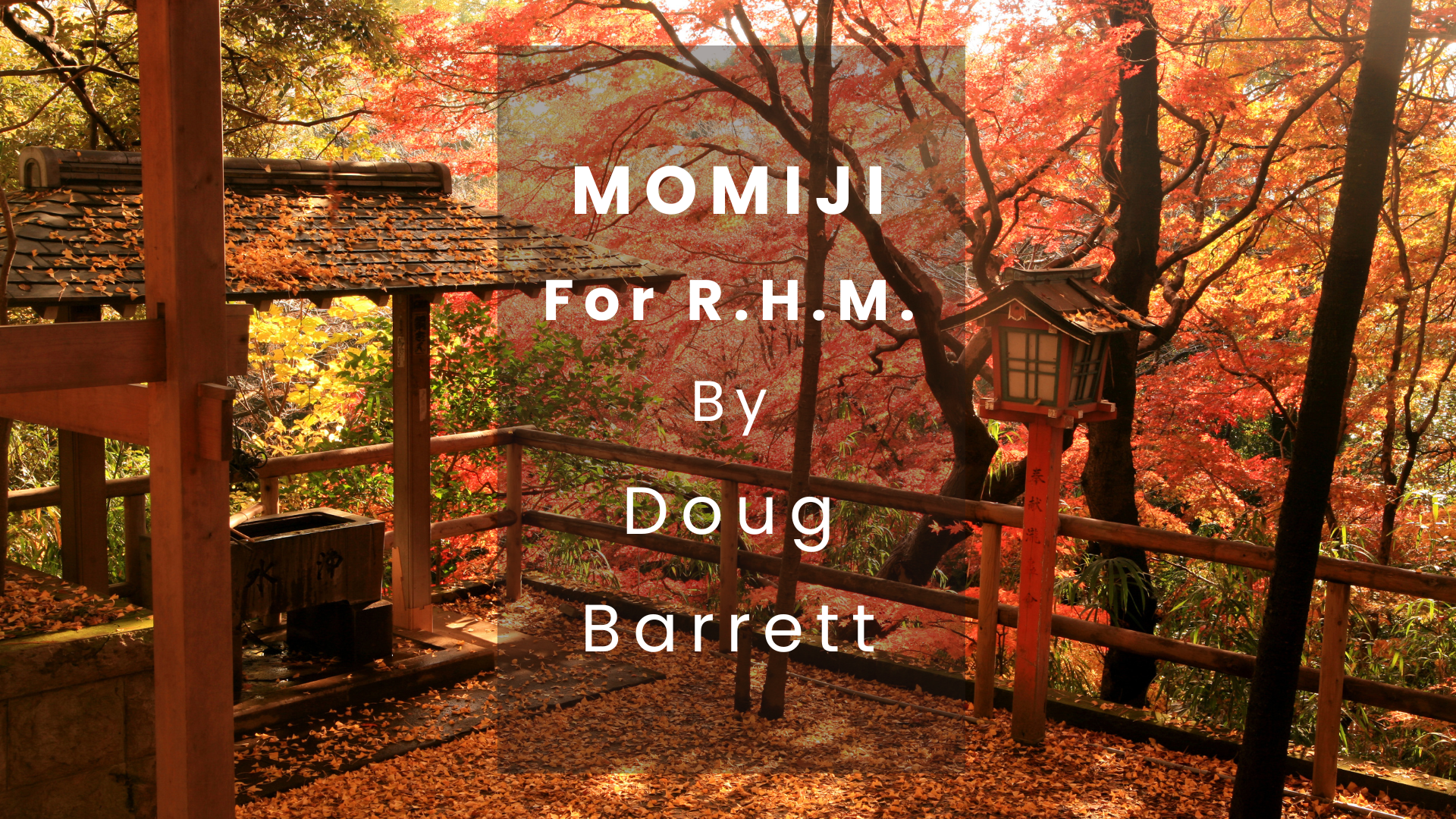Articles/Essays – Volume 58, No. 2
Momiji
For R.H.M.
Recall, in your mind’s eye, this sight: two white-shirted figures
exploring the October hills above Nagasaki. enjoying the freedom
to talk unencumbered. “Sometimes,” you said,
“I think nature has a way of playing Bach to itself.”
Ascending a path through terraced fields in the serene
late morning light
at forest edge they found a great stone staircase
winding up into the trees. Then
a gate in a stucco wall. Within
was the flagstone courtyard, immaculately swept,
of a Shinto shrine, the windowless cordovan buildings
sleepy with the peace of the place
the entire sanctuary canopied in fiery momiji.
Here, a wooden dipper upon a well.
A priest appeared and seemed to motion them to drink.
The water was ice cold—how long
since the sun had shone here beneath
this flaming red roof, this maple sea?
They stood speechless under the silence
of flickering crimson, as breezes danced the upper leaves
barely daring to move
the place performing the work
of attunement: decades, centuries, of daily sweeping and contemplation
as if the gift they’d sought so hard to give had found them at last.
Departing the opalescent shade, released through the opposite wall
onto a sunlit hill where a small red tori stood,
there on top they ate lunch, but took no pictures
except in the mind
of the empty inlets and islands of the blue Tachibana-wan
extending toward Kumamoto east
or, westward, of Nagasaki harbor’s monstrous toy ships, each
sipping the season, the imperfection
of every perfect moment
autumn-seared sun already undoing itself
in immortality and eternal life
illicit as eye could reach. Why had they in all their preaching been unable to find
such joy? What god had they denied to attain it?
Now, many years later,
when I mention that day
you don’t remember it. I didn’t know
I’d been left so far behind.
Listen to a conversation with the author about this piece here.


 Back to full Issue
Back to full Issue

